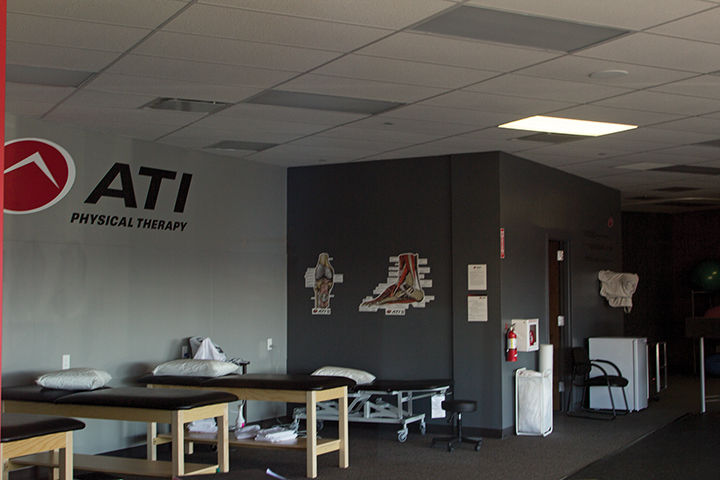
The ATI Physical Therapy location in College Park.
Options have now expanded for university students to get physical therapy with the opening of the ATI Physical Therapy clinic in College Park.
ATI Physical Therapy, which officially opened on Cherry Hill Lane on Dec. 15, is an outpatient clinic offering assorted physical therapy programs and training for patients in need.
“The biggest reason [for the clinic opening] was to meet the needs of the community,” said Jesse Mohoric, the clinic’s director. “We wanted to provide good physical therapy for the people of College Park.”
Located near Shoppers Food & Pharmacy and The Home Depot, the clinic is one of 37 branches in this state and 389 nationwide, said Julie Gardner, the company’s marketing specialist.
ATI Physical Therapy came to College Park this past year to fill a prime location that lacked viable physical therapy options, Mohoric said.
“We do a variety of different kinds of physical therapy,” Mohoric said. “We do sports physical therapy, orthopedic physical therapy and neurological physical therapy. We help a variety of different body parts. Basically from the neck to the feet.”
The University Health Center has been providing students the option of physical therapy sessions for more than 10 years, said Deirdre Younger, the center’s associate director.
Arlene Hernandez is the only licensed physical therapist on the campus, Young said. She is available by appointment four days a week, but students have to pay for the sessions because the health center does not bill insurance companies for physical therapy, though insurance providers might reimburse students afterward. The initial student physical therapy needs assessment is $75, and each subsequent session after is $50 at the health center.
ATI accepts almost all major insurance carriers and participates with local provider networks, Mohoric said.
Eric Eppich, a senior mechanical engineering major, originally thought he would head to the health center for physical therapy because of its proximity. But after learning about the per-session fees at the health center, he changed his mind.
“I would go to [ATI] because they accept insurance, and I wouldn’t have to pay,” Eppich said.
Marissa Sawicki, a sophomore supply chain management and operations management major, said she would be more likely to head to ATI for physical therapy simply because she would trust it more, although she has never had physical therapy through the school.
“I can’t always get the help I need [at the health center] to the extent that I need,” she said. “If I am sick, I always feel like I am better off going to a doctor to help make me feel better.”
The clinic currently has no direct relationship with this university, Mohoric said, but they have helped students in the past and will continue to do so.
“We treat everyone,” he said. “We would definitely see University of Maryland students and help them out as long as it is physical therapy.”
The main goal for ATI, he said, is to get patients the help they need to get people back to full strength.
“We want people to get to that next level and get back to the things they are able to do,” Mohoric said.



